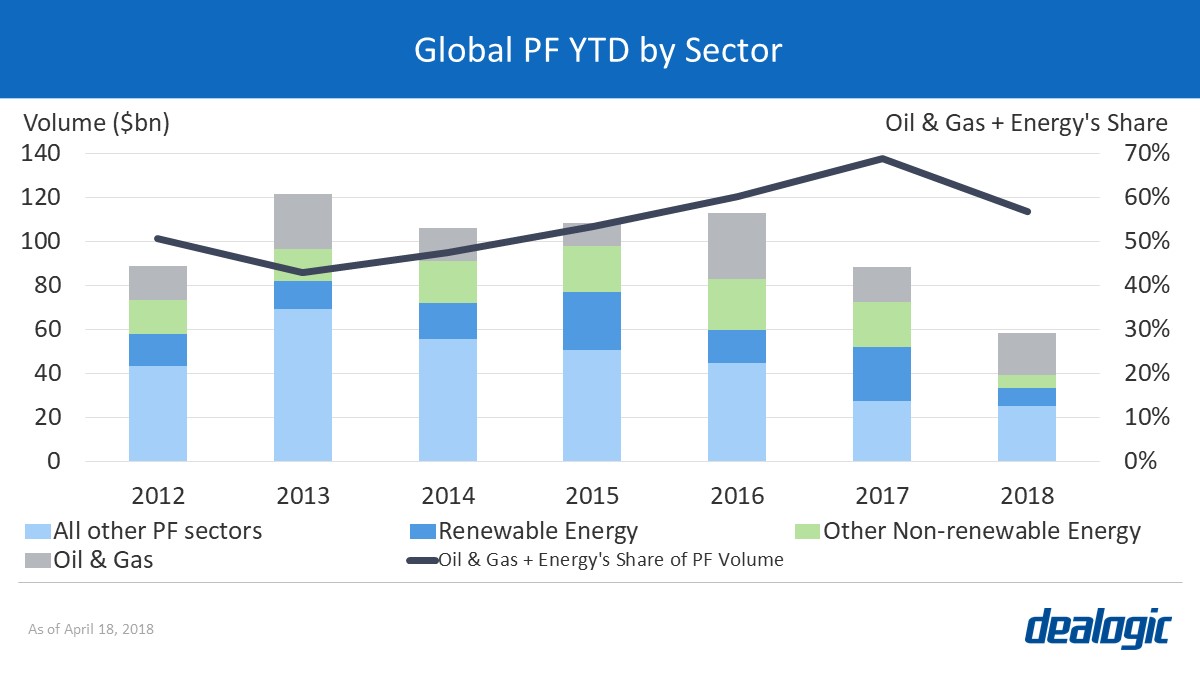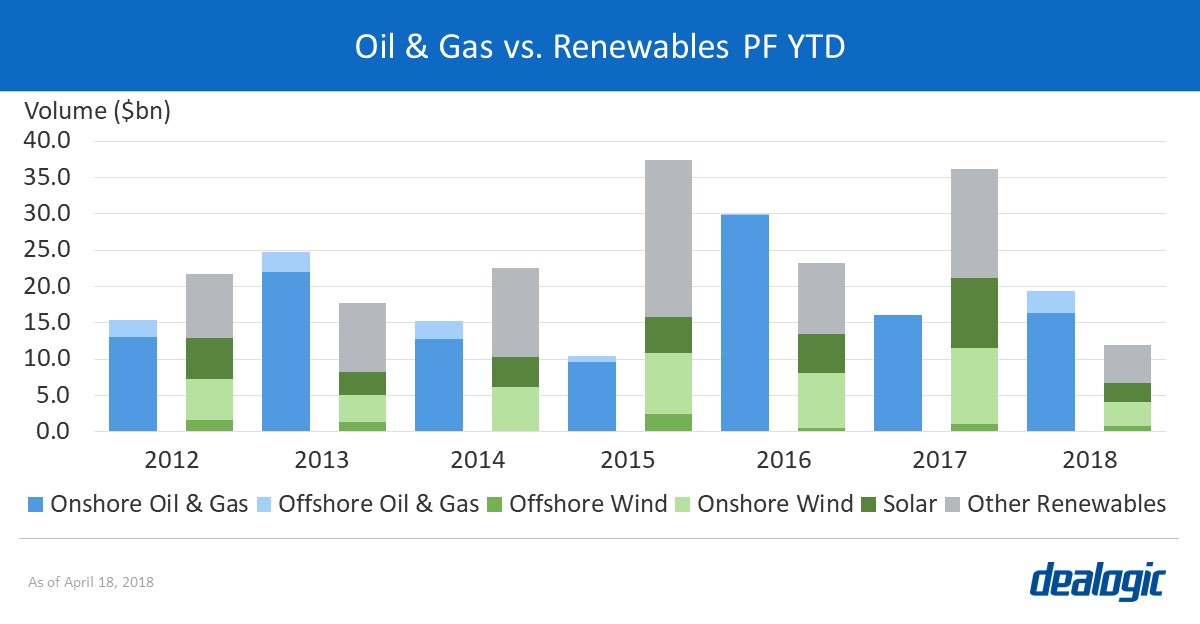Climate accord and leading PF sectors
2018 is a key year for the Paris Climate Accord, as milestones will be measured by the end of December. At first glance, global project finance (PF) seems to reflect this shift towards renewables. From 2017 YTD to 2018 YTD, oil & gas PF volume decreased 34% to $58.6bn, while energy volume decreased 45% to $33.3bn. In this light, the fact that oil & gas and energy are the leading PF sectors—with 31.7% and 23.8% of volume, respectively—points to both obstacles and opportunities for emission targets as global attention focuses on Earth Day and climate change.

Is 2018 YTD an exception?
Global oil & gas PF volume grew above renewables PF volume in 2018 YTD for the third time in the past seven YTD periods. In 2016 YTD, oil & gas volume reached nearly $30bn thanks to the $16.2bn Yamal LNG deal. The situation in 2018 YTD is similar, with a major contribution from the $8.0bn Pengerang Integrated Petroleum Complex (IPC) in Malaysia.
Factors including fewer state subsidies, hardening US tariff policies, and the comeback of offshore drilling projects may have also contributed to global renewables falling behind oil & gas. However, renewables activity is still ahead, with 62 PF projects so far this year compared to 14 for oil & gas.
Emerging versus developed economies
The global rise of oil & gas is not reflected across all regions. In emerging economies, oil & gas PF volume almost doubled year-on-year to $17.9bn in 2018 YTD from $9.3bn, despite activity falling to 11 deals from 12, thanks to the IPC project. On the other hand, renewables were driven by India and Brazil; their combined share of renewables PF activity in the emerging economies averaged 78.8% between 2014 YTD and 2017 YTD, and the trend continued in 2018 YTD with 63.6%.
Meanwhile, developed economies have seen renewables PF volume consistently rise above oil & gas volume since 2014 YTD. The gap has widened in 2018 YTD, with the volume of renewable projects more than 18 times larger than that of fossil-fuel projects, compared to less than 3 times in 2017 YTD. Just this month, the UK announced plans for tighter regulations targeting net-zero carbon emission, while New Zealand announced a proposed ban on new offshore oil & gas exploration. Pointing out such regional differences in energy projects can focus further investments towards achieving the goals set in Paris.
– Written by Róbert Balogh
Data source: Dealogic, as of April 18, 2018
Contact us for the underlying data, or learn more about the powerful Dealogic platform.
